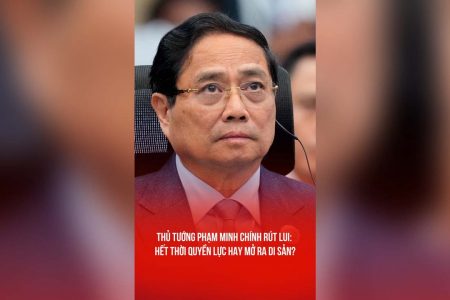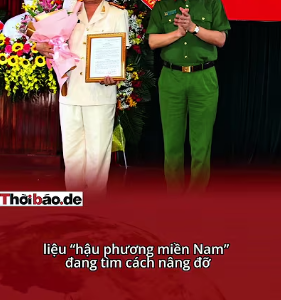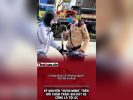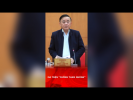
Since the outbreak of the COVID-19 pandemic from early 2020 to August 1, 2021, Vietnam has recorded more than 150,000 infections, more than 38,000 people have recovered, nearly 11 thousand patients are being treated and nearly 1,500 deaths. Ho Chi Minh City alone accounts for about 62% of the total number of COVID-19 infections. In recent days, the number of infections and deaths has increased rapidly. The fourth outbreak, which causes up to 98% of all infections and deaths, is considered the „most dangerous“ starting on April 27, 2021 and is h „very complicated“ due to the appearance of Delta variant which has the ability to spread quickly with few symptoms for recognization, short incubation period and easy to cause death.
Although the previous three outbreaks lasted for more than a year and the results of the fight against COVID-19 were „praised“ but Vietnam’s authorities did not anticipate the change of the pandemic with complicated and prolonged situations, so it did not reflect full capacity of the government and the trust of the people – the decisive factor to overcome the pandemic. An overview of anti-epidemic solutions includes: activating the „wartime state,“ the participation of the whole political system, prioritizing the use of administrative measures with „5 K“ as the symbol, quickly mobilizing human and material resources, especially in isolated and short-term areas.
The campaign reflects the advantages and determination of the totalitarian communist party regime. The anti-pandemic legal documents implemented by the Government include Directive 15 issued on March 27, 2020, Directive 16 (March 31, 2020) and April 24 (April 24, 2020) according to strict levels. Directive 16 is at the highest level and emphasizes the approach of social distancing, blockade, F0 suspected infection tracing for hospital treatment and F1 close contact for centralized isolation in approved facilities. Six lessons learned in epidemic prevention and control were summarized by the Ministry of Health on April 16, in which mainly the above-mentioned „administrative“ solutions, but lacked large-scale scenarios, and the vaccine strategy has not been valued.
In HCM City – currently the epidemic center of the 4th wave, the outbreak of disease spread in the community, the number of infections and deaths increased rapidly, making the motto „4 on the spot“ (command, force, means, materials and logistics on the spot) to fight the epidemic was unable to cope with the situation of „very complicated.“ Increasing levels of “tightening” were applied, from Directive 11 of the People’s Committee to Directive 16 and more recently Directive 16+, meaning longer and more stringent as since the end of July, people are banned from traveling from 6pm to 6pm for the whole city. In addition, 18 provinces and cities in the southwestern region are applying Directive 16, and many other provinces and cities, the number of infections in the community is also increasing. Hanoi capital has just applied Directive 16….
The Prime Minister raised „limitations“ on COVID-19 prevention and control during the Government’s online meeting with 21 provinces and cities on the evening of July 23, 2021. The „very complicated“ situation of this epidemic is challenging the capacity of the regime and the people’s trust in the regime.
The capacity of the regime is not only reflected in how power is centralized, but also that central and local governments need policy vision, expertise, enforcement skills and fairness to make decisions. In addition, capacity is also the available resource to fight the epidemic – what we are lacking to meet the epidemic situation that will continue to be stressful.
The granting of executive privileges was given to the authorities quickly in response to the current COVID-19 emergency. The Communist Party has issued a directive on anti-epidemic policy, the National Assembly approved a specific mechanism right at the last session, allowing the Government to apply measures „unprecedented in law“ to combat the pandemic. And the Government has set up special working groups of the prime minister at the epidemic center…. But the effective use of the power given depends first of all on the trust of the people.
Barriers can be quickly erected with many forces involved, but if power falls into the hands of those who neglect public service or have „authoritarian“ habits, then the treatment is like „bread not essential food” or their rough behavior towards the people will be the fastest way to lose trust.
Taking care of people and poor workers in the blockade area should be a top priority in fighting the epidemic. The disruption in the supply of essential goods has negatively affected their lives. The lack of an equal and proactive mechanism in relief, leading to discrimination between residents inside and outside the province, also causes „local congestion“ and troubles and hardships for thousands of people „running away to their hometown.“
Direct support to people, poor workers and businesses reveals the lack of a transparent access mechanism. The „policy failure“ from the VND62 trillion support package, signed by the Prime Minister of CP in April 2020, proves the „embarrassment“ in implementation and being held back by the mentality of „may be targeted by the target audience taking advantage” or “fear of responsibility.” The new support package of VND26 trillion from July is not enough given the scale of the epidemic and the vision of long-term effectiveness.
Flexibility to implement dual goals may be necessary for each location depending on the characteristics, for example, suitable for industrial zones in Bac Giang, but not for Binh Duong. However, in all situations, the safety of the people and the voluntariness of employees should be given top priority….
The vaccine strategy has changed the perception that administrative measures are „expensive“ that do not decide to win the epidemic. The mechanism of purchasing and establishing a Vaccine Fund with mobilization from the business community and the public, domestic vaccine production and vaccine diplomacy have been strongly promoted. However, it is necessary to have a strict mechanism to prevent and control profiteering and to openly and transparently approach such as testing and vaccination. The implementation of vaccination is still slow even though there is a vaccine, in addition, the „grandfather’s“ favor is always an objectionable image, causing public outrage.
The fight against pandemics is determined to be complicated and prolonged if not enough vaccines are given to at least 70% of the population. The health system in HCM City and 18 southern provinces is overloaded, lacks equipment, medical personnel… is ongoing and the situation of conditional home isolation for F0 and F1 cases is deployed.
In short, the main thing is not how autocratic the regime is, but all efforts to prevent the epidemic must be directed to the people, regardless of social status, rich or poor, inside or outside the province…, All must have equal, public access to food, relief packages, medical assistance and vaccinations. Vaccines decide to win the COVID-19 pandemic, and trust is the most important thing that determines the fate of the social system.
Thoibao.de (Translated)


























